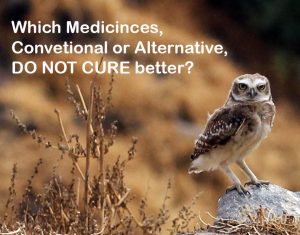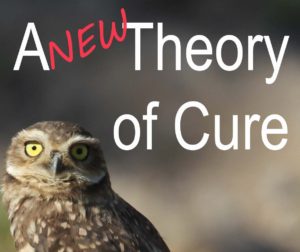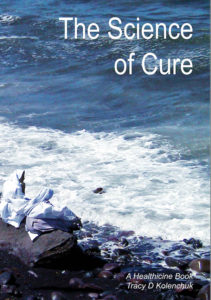Which medicine, “does not cure better“,
 – a conventional medicine, prescribed by your doctor and purchased at a pharmacy, or
– a conventional medicine, prescribed by your doctor and purchased at a pharmacy, or
– an alternative medicine, purchased at a pharmacy or health food store, or
– a homeopathic medicine, purchased at an alternative health clinic or
– a placebo?
Does it make sense to ask “which does not cure better?” No, it does not. But this is often the question asked by today’s medical researchers.
Most of today’s clinical studies do not contain a definition of “cured”. As a result, if the treatment cures, cured cannot be detected, much less documented. Most clinical studies measure “which medicine does not cure better”. Nonsense? Yes. But truth.
Are there any medicines that cure? Are there any diseases that can be cured?
Well, yes. Cured is possible for diseases caused by a parasite. We can sometimes cure an infection caused by bacteria, with an antibiotic. Sometimes, we can cut of an infected limb or organ, creating a surgical cure. But most diseases cannot be cured.
The World Health Organization top 10 causes of death, causing over 50% of all deaths worldwide: heart disease, stroke, chronic obstructive pulmonary disease, lung cancer, diabetes, dementia and Alzheimer’s, lower respiratory infections, diarrhoeal diseases, and tuberculosis, and road accidents. USA, the top causes of death are heart disease, cancers, chronic lower respiratory disease, accidents, stroke, Alzheimer’s, diabetes, influenza and pneumonia, kidney disease, and suicide. We should not expect any medicine to cure car accidents, stroke, or suicide.
The following list of diseases most important to cure: heart disease, chronic obstructive pulmonary disease, cancers, diabetes, dementia and Alzheimer’s, lower respiratory infections, diarrhoeal diseases, tuberculosis, influenza and pneumonia, and kidney disease.
Which can be cured by medicines? Only infections. We might cure respiratory infections, diarrhoeal diseases, and pneumonia with antibiotics. The rest?
Incurable Diseases
Cured is not defined for heart disease, chronic respiratory pulmonary disease, cancers, diabetes, dementia and Alzheimer’s, influenza, kidney disease. All are considered incurable by today’s medical sciences. If one of these diseases is cured, by medicine, by non-medicine, or by accident, it is not possible to detect a cure, not possible to prove a cure, because cured is not defined.
Cure is not in many medical dictionaries. Incurable is defined, in some medical dictionaries, using the word cure, which does not appear in the same dictionary.
Cured is not defined for the common cold. Cured is not defined for simple diseases like scurvy. Every chronic disease, from arthritis to obesity to varicose veins is incurable in today’s medical science. Cured is not defined for these diseases.
Cures don’t count. Cures are not counted. There are no statistics for cures, for any disease. Cures exist, there are many books that describe cures, and document cures, but most do not dare to use the word “cure” because cured is not defined in medicine.
What’s a Medical Researcher to do?
Today’s medical researchers design and test “treatments”, medicines that don’t cure. Researchers debate which medicines “do not cure” better. Of course no one argues that their medicine “does not cure better” than other medicines, they argue that it “works” better. Sometimes, they test “which medicine does not cure better than a placebo does not cure?“, demonstrating clearly that placebo effect is caused by ignorance.
“works” in medicine means “does not cure”.
If a medical treatment cures, we might argue that it “cures” better than the other medicine. When an antibiotic cures an infection, we seldom ask which might cure better. Sometimes, we should. But, when it doesn’t cure, we can debate, and design scientific studies to measure how well it “works”.
Do conventional medicines “work” when they don’t cure? Do alternative medicines “work” when they don’t cure? Do homeopathic medicines “work” when they don’t cure?
It’s a nonsense debate. It’s time to study cures. Time to define cured for every disease. There exist people who have cured their diseases, who have cured their cancers, but they are ignored. We must begin to search for people who have been cured, and understand how they were cured, and learn to cure from that research.
But there is no interest. Cure is not defined in prestigious medical reference tomes like Merck Manual of Diagnosis and Therapy (not manual of cures). Harrison’s Principles of Internal Medicine does not defined cure, and does not contain any principles of cures. Lange’s Current Medical Diagnosis and Treatment does not defined cure, and does not discuss current medical cures, only diagnosis and treatments. The Diagnostic and Statistical Manual of Mental Disorders (DSM–5), likewise, does not define cure, and thus, by lack of definition, all mental disorders are ‘incurable’.
So we study, and report, and argue about “Which medicine does not cure better?”
Someday…. we will find our way through the nonsense…
to your health, tracy
Founder: Healthicine


